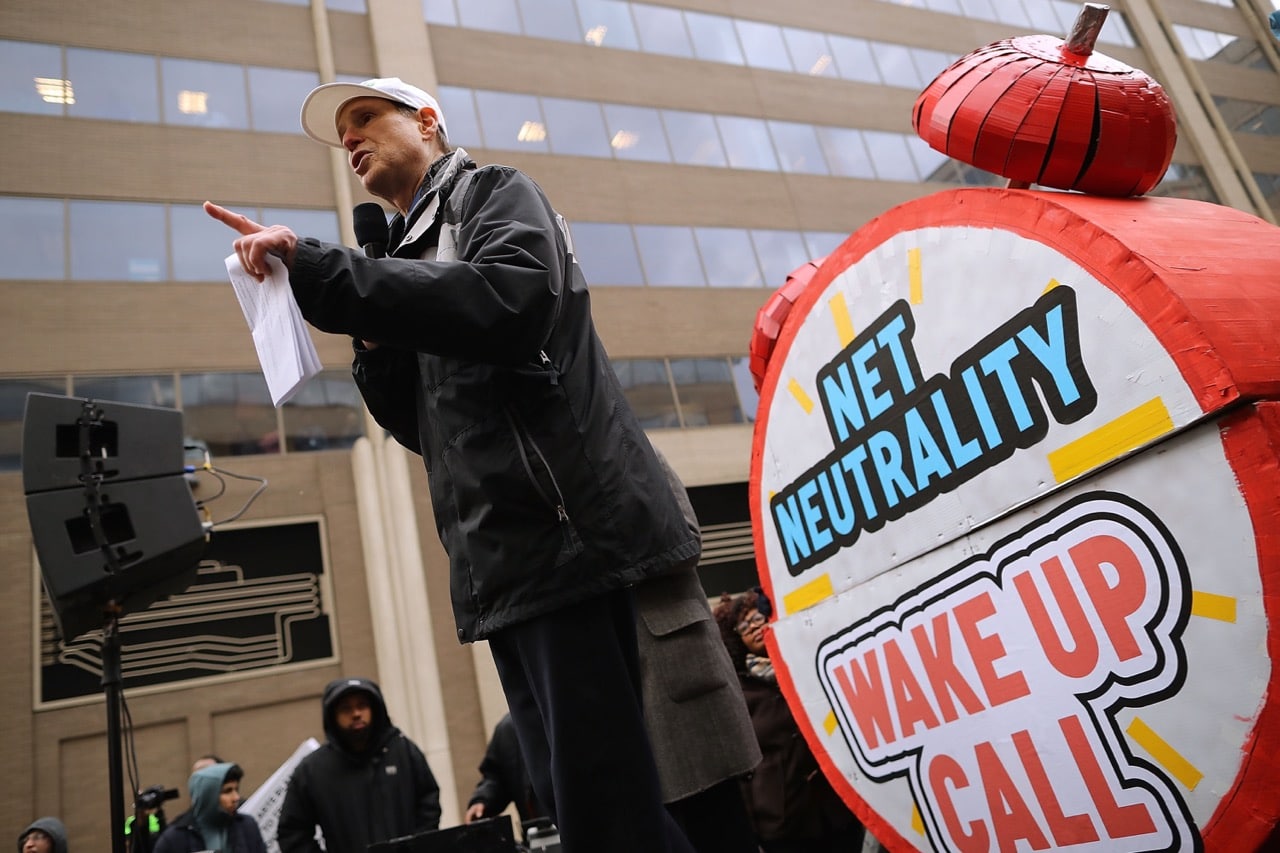After the historic vote in the Senate, it's time to win in the House of Representatives. While many think the uphill battle there makes it a lost cause, EFF argues that together we can keep the Internet free and open.
This statement was originally published on eff.org on 18 May 2018.
The United States Senate has voted to overturn the FCC and restore net neutrality protections – the fate of that measure currently rests in the House of Representatives. While many will think that the uphill battle there makes it a lost cause, that is simply not true. Together, we have the power to win in the House of Representatives.
Now that the Senate has officially voted 52-47 to reverse the FCC’s so-called “Restoring Internet Freedom Order” under an expedited procedure known as the Congressional Review Act (CRA). It is now pending a vote in the House of Representatives. And while many will incorrectly assume since House Republican leadership has expressed their opposition to ever voting on net neutrality, nothing will come of it, the wishes of the leadership are frankly irrelevant.
What actually matters is whether 218 members of the House of Representatives from either party want to vote to protect net neutrality through a process called a “discharge petition.”
What is a Discharge Petition?
In 1931 the House of Representatives created a process where, if a majority of elected officials disagreed with the decision of the Speaker of the House and leadership team, they could force a vote on an issue. From 1967 to 2003 there have been 22 discharge petitions that reached the requisite 218 signatures to force a vote on an issue. This happens when there is overwhelming public pressure from citizens on their House Representative because they have to overrule their leadership’s opposition.
Net neutrality fits that formula. An overwhelming number of Americans opposed the FCC’s decision to repeal net neutrality with even more Americans registering their opposition in more recent polls (90 percent Democrats, 82 percent Republicans, and 85 percent independents). That strong support makes it possible to put pressure on representatives all across the country to sign the discharge petition.
Plus, you have a woefully out of touch FCC Chairman who openly mocks people who support net neutrality (which is basically everyone), and so politicians have to decide if they are on his side or with the American people. And you have a nationwide mobilization of small businesses, online video creators, civil rights groups, consumer groups, libraries, and technologists opposing the FCC.
Now it’s time to channel our forces to get 218 signatures from House Representatives.
We Need Everyone Now
You need to tell your House member to “sign the discharge petition on net neutrality.” Too often they will feign support for net neutrality or argue in favor of a fake net neutrality bill that actually legalizes paid prioritization (essentially allowing ISPs to charge websites for priority and slowing down parties that do not pay extra fees). As the polls of public opinion make clear, that position is not about what their constituents want and is more likely related to ISP lobbying and their campaign money.
Do not give them that space.
Make it clear that signing the discharge petition is the only way they can prove they support a free and open Internet. Supporting the discharge petition is a commitment to supporting net neutrality and voting for keeping the old protections. Anything falling short of signing it is both in effect and in outcome a vote against net neutrality.
That means calling their office on the phone to make the demand, going to a town-hall, or visiting their local district office, and making it clear you want them to sign the discharge petition. A politician can listen to a constituent demand a vote only so many times before it overwhelms the political money of companies like AT&T and Comcast. They answer to you first at the end of the day.
Once your elected official commits to signing the petition, they have to personally sign the document on the floor of the House of Representatives, upon which the document’s signer list is updated here. When we get to 218 signatures, the bill will come to the floor for a vote and will pass to the President for his signature. At which point, we’ll apply the same pressure to him we did to Congress.
Congressman Mike Doyle (D-PA) initiated the discharge process on May 17, the day after the bill passed the Senate. More than 160 House of Representatives have pre-committed to supporting reversing the FCC before that discharge process even started, leaving us with a concrete goal of now pressuring the remaining Democrats and Republicans to support the petition. EFF has been tracking the public statements of support and opposition of House members here and has made it easy to call your representative by going here.
We have a lot of work ahead of us, but together we can keep the Internet free and open.
Take Action



